Q
Can I charge EV6 at home?
Yes, you can charge the EV6 at home, which is one of the most convenient charging methods for electric vehicle owners. In Malaysia, home charging usually requires the installation of a Wallbox. It charges faster and is safer than an ordinary socket. The EV6 supports both AC charging and DC fast charging. Home charging is mostly AC charging, with a power generally ranging from 7kW to 11kW, depending on the charging equipment you install. It is recommended to hire a professional electrician to check if your home circuit meets the requirements and install a dedicated charging socket or charging box to ensure safety and efficiency.
In addition, the Malaysian government is promoting the popularization of electric vehicles. Some states may offer subsidies for charging facility installation or electricity bill discounts. It is advisable to inquire with the local power company or relevant departments. If you often drive long distances, you can also use public fast - charging stations in combination. The EV6 supports fast - charging technology of up to 350kW, which can replenish a large amount of power in a short time. Home charging is suitable for use at night or during long - term parking, which is both cost - effective and time - saving.
Special Disclaimer: This content is published by users and does not represent the views or position of PCauto.
Related Q&A
Q
What is the life expectancy of the Kia EV6?
As an advanced electric vehicle, the lifespan of the Kia EV6 mainly depends on the usage and daily maintenance of its battery pack. According to industry standards, the battery packs of modern electric vehicles can usually maintain a range for 8 to 10 years or about 160,000 to 200,000 kilometers under normal usage conditions. After that, the battery capacity may gradually decline to 70% - 80% of its original capacity, but it can still be used. Kia offers a battery warranty policy for the EV6 in Malaysia, generally covering 7 years or 150,000 kilometers, which provides additional protection for the owners. It is recommended that owners conduct regular battery health checks and follow the manufacturer's maintenance guidelines to extend the vehicle's lifespan. The motor and transmission system of electric vehicles have a relatively simple structure and low maintenance costs, which is also one of the advantages of the EV6 in long - term use. Regarding the climate conditions in Malaysia, the high temperature and humidity may have a slight impact on the battery performance, but Kia's battery management system has been optimized for such environments to ensure stability and safety. Overall, as long as it is properly maintained, the EV6 can meet the long - term vehicle usage needs of most users. Meanwhile, the environmental - friendly features and low operating costs of electric vehicles also make it a practical choice in the Malaysian market.
Q
Is the Kia EV6 safe in a crash?
The Kia EV6 performs excellently in collision safety. It received a five-star rating in the tests conducted by the European New Car Assessment Programme (Euro NCAP), which proves that it meets high standards in aspects such as adult occupant protection, child occupant protection, vulnerable road user protection, and safety assist systems. It especially shines in the frontal and side collision tests. The vehicle has a sturdy body structure and a quick - reacting airbag system, which can effectively protect the safety of passengers inside the car.
For Malaysian consumers, the EV6 is also equipped with a wealth of active safety technologies, such as forward collision warning, lane - keeping assist, and blind - spot monitoring. These functions can further enhance safety during daily driving.
In addition, the EV6 uses a dedicated electric vehicle platform, and the battery pack is protected by a sturdy frame, which reduces the risk of battery damage during a collision. This is also an important consideration in the safety design of electric vehicles.
If you're thinking about buying an EV6 in Malaysia, you can have confidence in its safety performance. At the same time, it's recommended that you take a test drive at an authorized dealer to personally experience its driving feel and the practicality of its safety features.
Q
Is the Kia EV6 a good car?
The Kia EV6 is an electric vehicle that has attracted significant attention in the Malaysian market. It has won the favor of many consumers with its excellent performance and advanced technology. The EV6 is built on the E-GMP electric vehicle platform dedicated by the Hyundai Motor Group, offering excellent range. It can reach up to 528 kilometers (WLTP standard), which is suitable for long - distance driving needs in Malaysia. Its fast - charging function can charge the battery from 10% to 80% in just 18 minutes, greatly reducing the charging waiting time.
In terms of the interior, the EV6 is equipped with dual 12.3 - inch curved displays and an Advanced Driver - Assistance System (ADAS), exuding a strong sense of technology. In terms of power performance, the EV6 GT version has a powerful output of 585 horsepower, and it can accelerate from 0 to 100 km/h in just 3.5 seconds, meeting the needs of users who pursue driving pleasure.
For Malaysian consumers, the EV6 also has good adaptability. Its chassis tuning can handle the local variable road conditions, and the battery system has also been tested in high - temperature environments to ensure reliability. In addition, Kia has a relatively complete after - sales service network in Malaysia, providing convenient maintenance support for electric vehicle users.
Overall, the Kia EV6 is an electric vehicle that combines performance, technology, and practicality, making it suitable for consumers who want to try electric vehicles without compromising on the driving experience.
Q
How much does it cost to replace a Kia EV battery?
The cost of replacing a Kia EV battery in Malaysia generally ranges from RM30,000 to RM60,000. The specific price depends on the vehicle model, battery capacity, and whether you choose the original - factory or third - party repair services. For example, the Kia Niro EV has a larger battery pack, so its replacement cost might be higher.
In Malaysia, the price of an EV battery usually includes the cost of the battery module, labor fees, and system inspection fees. Some repair centers may offer installment - plan payment options or warranty services. It is recommended that car owners consult the officially authorized service centers for accurate quotes.
Moreover, the lifespan of an EV battery typically lasts 8 to 10 years or 150,000 to 200,000 kilometers. Regular maintenance, such as avoiding excessive fast charging or long - term full - charge storage, can extend the battery's performance. If the battery capacity drops below 70%, car owners can consider having a professional inspection to determine whether a replacement is necessary. In some cases, only individual battery modules need to be repaired to cut down the cost.
Currently, the Malaysian government offers tax incentives for EVs, and there might be a battery replacement subsidy policy in the future, which is worthy of car owners' attention.
Q
What is the Kia EV6 equivalent to?
As a pure-electric crossover SUV, the main competitors of the Kia EV6 in the Malaysian market include models such as the Tesla Model Y, Hyundai IONIQ 5, and Ford Mustang Mach-E. These models also focus on high performance and long range, and they are similarly positioned. The Kia EV6 stands out with its 800V ultra-fast charging technology, a maximum driving range of 510 kilometers (WLTP standard), and the GT version's ability to accelerate from 0 to 100 km/h in 3.5 seconds. It is particularly suitable for the needs of Malaysian consumers in terms of charging efficiency and driving experience.
When considering price and configuration, the EV6 is positioned between luxury and mainstream brands in the local market. Its positioning partially overlaps with that of models like the BYD Atto 3 or Toyota bZ4X, but it emphasizes more on sporty design and a sense of technology. For Malaysian users, the advantages of the EV6 also include the potential price advantage brought by local assembly (CKD) and the 8-year battery warranty policy provided by Kia Malaysia. These factors make it a practical choice for mid - to high - end electric vehicles.
In addition, the V2L (Vehicle-to-Load) function of the EV6 is very practical in the many outdoor scenarios in Southeast Asia, which further enhances its market competitiveness.
Q
Can you charge a Kia EV6 at Tesla?
Yes, the Kia EV6 can be charged at Tesla charging stations, but you need to pay attention to compatibility issues. Some of Tesla's Superchargers in Malaysia have been opened for electric vehicles of other brands. You just need to use a suitable adapter or start the charging via the Tesla app. However, the charging speed may be affected by the matching degree between the vehicle and the charging pile protocol. The Kia EV6 itself supports the CCS2 charging standard, and Tesla Superchargers also adopt the same standard, so it is theoretically compatible. But it is recommended to confirm whether the charging station supports non - Tesla vehicles before charging.
In addition, apart from Tesla, there are also other operators such as ChargeEV, Gentari, and Shell Recharge in Malaysia's public charging network, which provide CCS2 - compatible charging piles. EV6 owners can also choose these charging stations for a more flexible charging experience. For electric vehicle owners, it is very important to understand the vehicle's charging standard and the distribution of surrounding charging facilities. This way, they can better plan long - distance trips and avoid charging anxiety.
Q
How often do you need to service a Kia EV6?
According to the official advice from Kia Malaysia, as a pure electric vehicle, the maintenance cycle of the Kia EV6 is different from that of traditional fuel - powered cars. It is generally recommended to conduct a routine inspection every 12 months or every 15,000 kilometers, whichever comes first. The main items include checks on the battery system, brake fluid, coolant, as well as the tire and brake systems. Since electric vehicles don't have engines and transmissions, there's no need to change the engine oil or oil filter, which can significantly reduce maintenance costs and time.
For Malaysian car owners, the hot and humid climate may affect the battery life and the electrical system. Therefore, it's advisable to regularly check the battery cooling system and the tightness of high - voltage lines to ensure the vehicle maintains optimal performance in high - temperature environments.
In addition, although the mechanical structure of electric vehicles is relatively simple, attention still needs to be paid to the replacement of the air - conditioning filter, especially in areas with relatively serious air pollution in Malaysia. This helps maintain the air quality inside the vehicle.
The intelligent connectivity system of the Kia EV6 also undergoes OTA remote updates. Car owners don't need to go to the service center specifically for software upgrades. However, if there are system abnormalities, they should still contact the authorized repair points in time for handling.
Overall, the Kia EV6 has a lower maintenance frequency and is more cost - effective. However, regular maintenance is still the key to ensuring vehicle safety and extending its service life. It is recommended that car owners strictly follow the maintenance plan in the official manual.
Q
What are the cons of the Kia EV6?
As a pure - electric SUV, the Kia EV6 has good performance and advanced tech features in the Malaysian market. However, there are also some drawbacks that need to be considered.
Firstly, there's the issue of charging infrastructure. Malaysia's public charging network is still under development, especially in remote areas. This could affect the convenience of long - distance travel.
Secondly, the price is relatively high. Compared with fuel - powered vehicles in the same class or some hybrid models, the selling price of the EV6 may exceed the budget of some consumers.
In addition, although the EV6 has a good range, in extreme weather conditions such as high - temperature environments, the battery efficiency may be affected to a certain extent. This is a common challenge faced by electric vehicles.
Finally, since electric vehicle technology is relatively new, maintenance may require specialized technical support. The after - sales service network in some areas may not be fully developed.
For Malaysian consumers, when considering purchasing the EV6, it is recommended to check the nearby charging facilities and repair points in advance to ensure the convenience of daily use. At the same time, they can also compare other electric vehicle models to choose the option that best suits their needs.
Q
How long will a Kia EV6 battery last?
The battery life of the Kia EV6 typically lasts over 10 years or about 150,000 to 200,000 kilometers, depending on usage habits and maintenance. Modern electric vehicle battery technology is quite mature. The lithium-ion battery pack in the EV6 experiences a capacity decline of about 1% to 2% per year under normal use. This means that even after driving 100,000 kilometers, it can still retain over 80% of its original capacity.
For users in Malaysia, the hot climate might slightly speed up battery aging. However, the EV6's advanced battery management system can effectively regulate the temperature. It is recommended to avoid frequent fast charging and long - term full - charge storage to extend the battery life.
It's worth noting that Kia offers a battery warranty for the EV6 that lasts up to 7 years or 150,000 kilometers, covering the usage period of most car owners. Moreover, after the end of the electric vehicle battery's life, it can still be reused as an energy storage device. This environmentally friendly design also aligns with the global sustainable development trend.
If you're considering buying an EV6, you can be confident about its battery durability. Meanwhile, having regular battery health checks at an authorized service center can further ensure its performance.
Q
Should I charge my EV6 every day?
Regarding the question of whether you should charge the EV6 every day, it mainly depends on your daily usage needs and battery health considerations. As a modern electric vehicle, the optimal charging range for the EV6's lithium battery is generally recommended to be kept between 20% and 80%. Frequently charging the battery to full or completely discharging it may have a certain impact on the battery life. If your daily commuting distance is short and the remaining battery charge is still within a reasonable range, there's no need to charge it every day. You can charge it every few days, which is more conducive to extending the battery life. On the contrary, if you drive a long distance every day and consume a large amount of battery power, it's reasonable to charge it every day to ensure there's enough power for the next day.
In addition, the climate in Malaysia is hot. It's recommended to avoid charging for a long time in high - temperature environments as much as possible. Choosing to charge in a shady place or at night is more beneficial to the battery health. For EV owners, regularly checking the battery status and using the slow - charging mode also help maintain the battery performance. Meanwhile, reasonably planning the charging frequency and method can keep your EV6 in the best condition.
Latest Q&A
Q
What is the difference between the 2024 and 2025 BMW 5 Series?
There are some differences between the 2024 and 2025 BMW 5 Series models. In terms of pricing, the 2024 520i starts at RM 332,800, with the 520i M Sport variant coming in at RM 349,800. The 2025 530i M Sport, on the other hand, is priced at RM 399,800.
Under the hood, the 2024 520i engines deliver either 210PS or 208PS, while the 2025 530i M Sport ups the ante with a 258PS powerplant. Performance-wise, the 2024 models top out at 230km/h and sprint from 0-100km/h in 7.5 seconds. The 2025 model pushes that top speed to 250km/h and shaves the 0-100km/h time down to just 6.2 seconds.
Looking at the specs, some 2024 trims have rear seats with manual adjustments or fixed configurations, whereas the 2025 model gets a 40:20:40 split-folding rear seat setup. Audio systems also see an upgrade: most 2024 models feature Harman Kardon speakers, while the 2025 model steps up to a Bowers & Wilkins surround sound system.
Additionally, the 2025 5 Series hit dealerships on March 13, 2025, and comes with a 2-year unlimited mileage warranty. The 2024 models first arrived on September 2, 2024.
Q
How much is insurance for a 2024 BMW 5 Series?
The insurance cost for the 2024 BMW 5 Series in Malaysia varies based on several factors, typically ranging from RM5,000 to RM15,000 annually. The exact amount depends on the vehicle model (such as 520i, 530e, or M550i), engine displacement, the owner's age, driving record, type of policy (comprehensive or third-party), and the insurance company's discount policies. For instance, the high-performance M550i, with its higher repair costs, will have significantly higher premiums than the entry-level 520i, while the hybrid 530e may qualify for partial insurance discounts due to its eco-friendly features. Additionally, Malaysia's insurance market is influenced by the No Claim Discount (NCD), where drivers with consecutive claim-free years can enjoy a maximum 55% reduction in premiums. It's advisable to obtain accurate quotes through insurance company websites or comparison platforms before purchasing a car, and also to understand the additional services offered by Malaysian car insurance, such as roadside assistance or windscreen coverage, as these details can impact the final decision. Notably, luxury car insurance usually includes higher third-party liability coverage limits to comply with local regulatory requirements, and owners can also adjust the excess amount according to their needs to balance premium costs.
Q
What is the maintenance cost of a 2024 5 Series?
The maintenance costs for the 2024 BMW 5 Series in Malaysia can vary depending on the specific model and driving habits, but generally speaking, the regular servicing fees for the first 3 years of a new car are roughly between RM3,000 to RM5,000 per year. This depends on the chosen original maintenance package and the actual mileage driven. BMW offers various maintenance plan in Malaysia, allowing owners to opt for one-time payment or installment plans. These packages typically cover basic items like oil changes, filter replacements, and brake inspections. If the vehicle is equipped with more high-tech features, such as active suspension or a hybrid system, the long-term maintenance costs might be slightly higher. However, BMW's after-sales service network in Malaysia is quite comprehensive, with many authorized service centers capable of providing professional maintenance and repair services. To reduce long-term ownership costs, it's advisable for owners to follow the manufacturer's recommended regular maintenance schedule and use genuine parts. This not only extends the vehicle's lifespan but also helps maintain a good resale value. Additionally, given Malaysia's hot and humid climate, owners should pay extra attention to maintaining the air conditioning system and battery to ensure the vehicle always stays in optimal condition.
Q
How much is a used BMW 5 Series 2024?
In the current Malaysian market, used 2024 BMW 5 Series models aren't widely available yet due to the new car's relatively recent launch. However, based on the market trends for used BMW 5 Series of similar model years and conditions, prices typically range from RM250,000 to RM350,000. The exact price depends on factors like trim level, mileage, maintenance history, and whether the original factory warranty is still valid. For instance, higher-spec models like the 530i M Sport might be closer to the upper end of that range, while entry-level variants such as the 520i would be relatively lower. When buying a used car, it's advisable to go through officially certified pre-owned channels or reputable dealerships to ensure the vehicle has undergone rigorous inspection and comes with warranty coverage. Additionally, the BMW 5 Series is renowned for its luxurious interior, advanced technology, and driving dynamics – the 2024 model, in particular, likely features the updated iDrive system and mild-hybrid technology, which also influence used prices. In Malaysia, used car prices can also be affected by import duties, road tax, and insurance costs, so it's recommended to thoroughly assess the total cost of ownership and compare different car sources to get the best value for money before making a purchase.
Q
How many BMW 5 Series sold in 2024?
As of 2024, official sales figures for the BMW 5 Series in Malaysia haven't been formally released yet. But looking at BMW Malaysia's past market performance and industry trends, this luxury sedan has always maintained steady demand locally, especially thanks to its blend of sporty performance and business luxury that really resonates with local buyers. For 2024, the BMW 5 Series has rolled out more eco-friendly powertrain options, like plug-in hybrid models, which should further appeal to buyers who want both efficiency and high performance. In the Malaysian market, luxury car sales are usually influenced by the economic environment, consumption tax policies, and brand promotional activities. Interested consumers are advised to follow BMW Malaysia's official website or authorized dealers for the latest and most accurate information. Additionally, as a representative of mid-size luxury sedans, the BMW 5 Series competes with models like the Mercedes-Benz E-Class and Audi A6, which also have a strong presence in the Malaysian market. Consumers can make a comprehensive comparison based on personal preferences and budget.
View MoreRelated News

In Malaysia, which sliding door MPVs are available?
MichaelOct 30, 2025
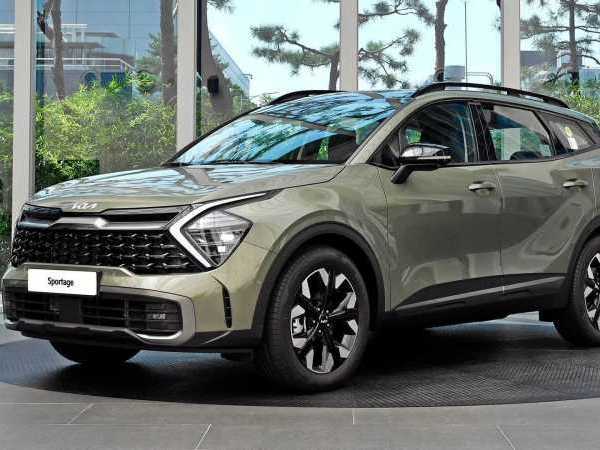
Kia Sportage: Superior Suspension for Smooth Ride
Kevin WongMay 19, 2025
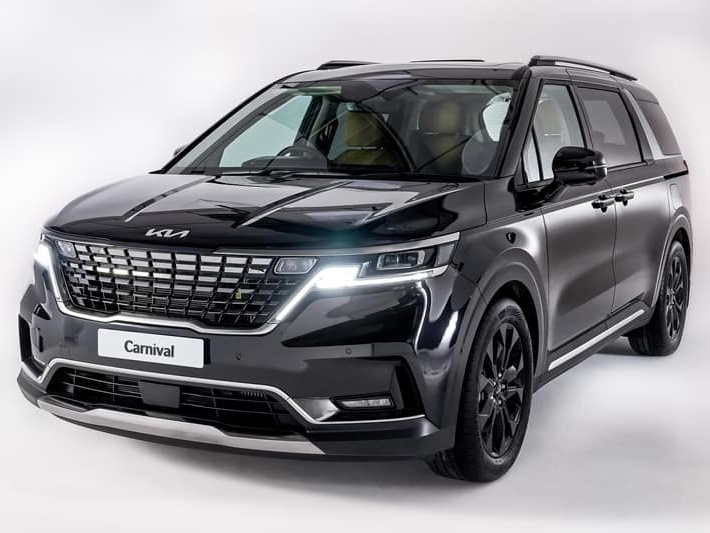
Kia Carnival: Spacious & Versatile for Every Journey
Kevin WongMay 19, 2025
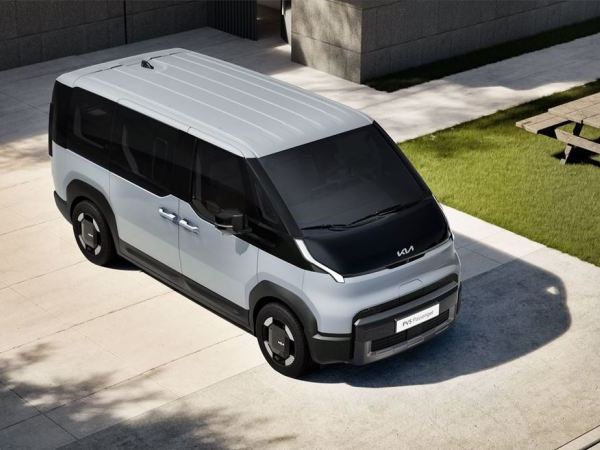
Kia reveals all details of PV5, with a maximum range of up to 400 kilometers
LienMar 11, 2025
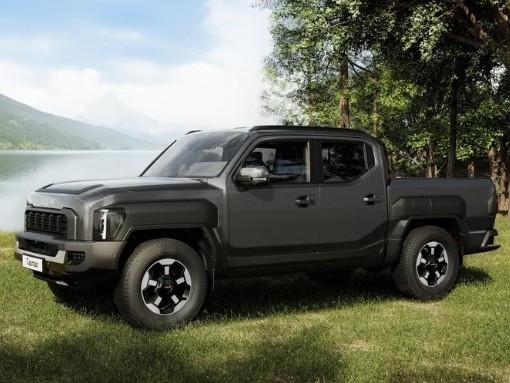
173L cargo box, 3500kg towing capacity, KIA Tasman meets all your needs!
MichaelOct 31, 2024
View More












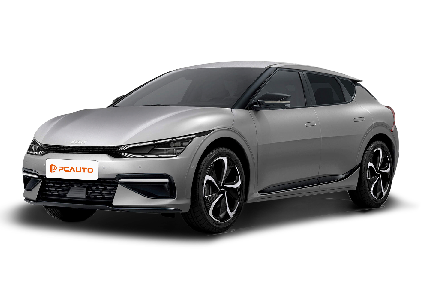
 Cars
Cars




Pros
Cons